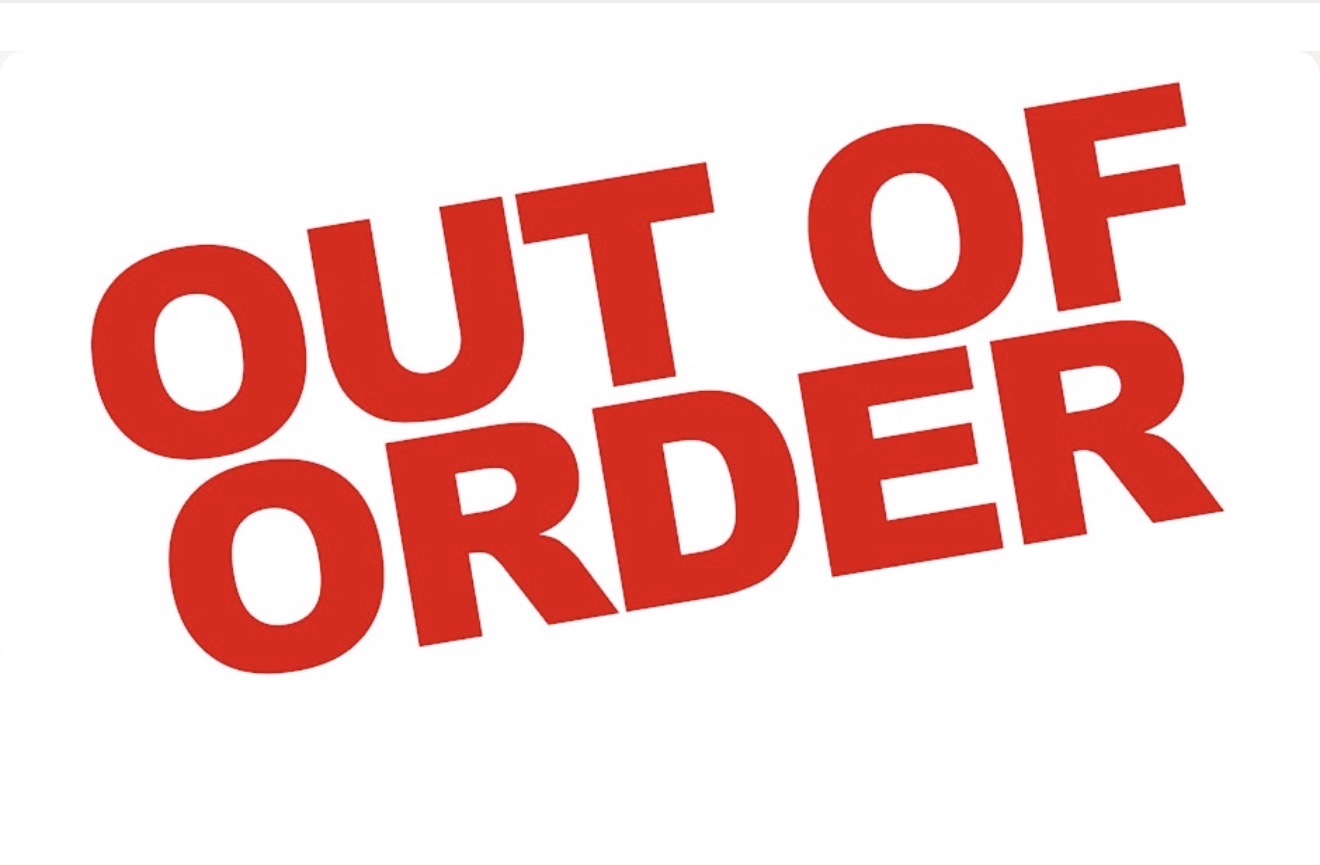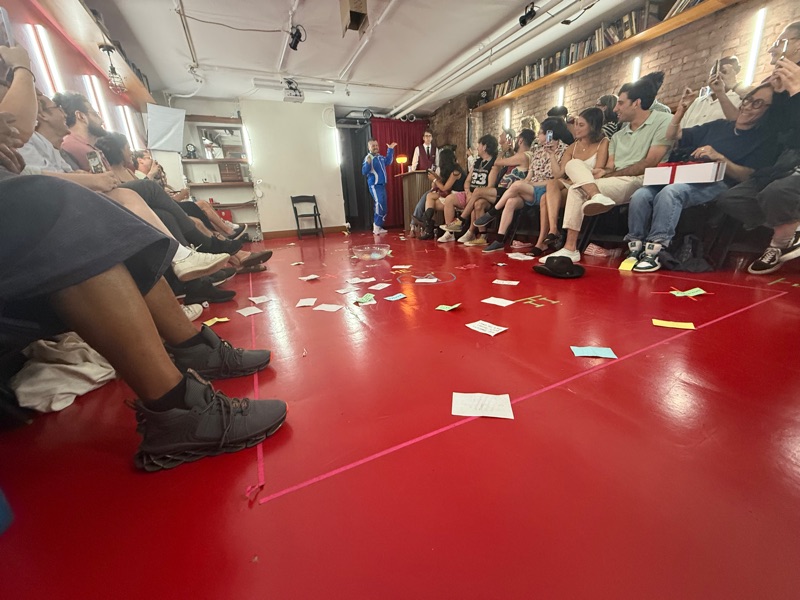 |
| Image Credit: Most Unwanted Productions © 2025 |
Last night, I found myself in a basement in the East Village—The Basement, to be exact—watching Carl Holder perform Out of Order, his one-man show that unfolds, quite literally, out of order. What follows is my reflection on a play that’s part sketch, part confession, and wholly committed to the idea that live performance still matters in a fractured world.
Tonight, I saw Carl Holder’s play Out of Order in the East Village, at a venue called The Basement—because, quite literally, it’s in a basement. At the start of the show, Carl claims that when he turned forty, he realized he could no longer write theater. I mean, this is coming from someone who is clearly an accomplished playwright, a teacher, and someone who has devoted his life to the theatrical arts. That moment in the show could have fallen flat—it risks sounding like artifice: the artificer talking about his artifice. It’s like if God came down and said, “I built this world, and I’m proud of it, but I think I’m done.” But it doesn’t really play out that way.
Carl is genuinely heartfelt. You get the sense that he’s someone who thinks and feels deeply. In one sketch, he talks about his upbringing—how he mimicked characters from TV and movies, acting before he even knew what acting was. That rang true. Maybe it’s a universal experience—this intuitive pre-interest in something, even before we have a name for it. The world calls it being alive. Or maybe it’s like falling in love with a profession before realizing it is a profession.
I really appreciated that thread throughout the show. And yes, it’s called Out of Order because it’s literally presented out of order. A clear bowl sits in the center of the stage. Carl pulls cards from it, each with a word or phrase that reminds him of what to do next. There’s a sort of automatism to it—like a carnival of surprises. And there’s audience participation, too. In fact, it’s the only play I’ve attended where no one told us to turn off our phones. There’s even a moment when he asks us to take a photo—so of course I snapped one and posted it.
This isn’t the first time I’ve seen the show. I caught an earlier version at a bird sanctuary—yes, really—earlier this year. So I got to witness its evolution. The essence is still intact. It’s a one-man show, intimate, monologue-driven, though in this version, there’s a concession agent who plays a minor but delightful role—something new since the first time I saw it.
The production reminds me a bit of Wes Anderson, in its meta-awareness of its own performance. It plays with theatrical conventions while still tugging at something sincere. At its heart, I think the show is about failure—or the feeling of failure. It’s about wondering whether you’re enough. Carl seems to suggest that creatives—those who crave expressive outlets—often carry a persistent emptiness. Others might turn to drugs, alcohol, or sex; Carl turns to self-deprecating humor and radical vulnerability. Even the New York Times blurb picked up on that emotional core: it’s heartfelt, not hollow. It doesn’t feel fake.
There’s a moment where Carl reads from what appears to be his actual bank statement. And you find yourself wondering: Is this real? Is he really with Bank of America? That’s the magic of live theater—it can hold a mirror up to its audience. And that’s always been part of theater’s purpose, right? We’re watching, but we’re also being watched. And we start to ask: Is he talking about me? Am I the one in need of catharsis?
Carl even gives us a tongue-in-cheek run-through of classic dramatic structure—exposition, rising action, climax, falling action. He’s a consummate artist, and this one-hour-and-a-half performance he’s created in the Village is truly worth seeing. I believe it’s running for just eight more days, so time is of the essence. I’ll include the details below.
As someone who loves going to the theater—but isn’t a theater-maker myself—Out of Order reminded me why we go at all. I love the premise: a playwright unsure how to write a play. Carl talks openly about rejection—by grad programs, directors—and his own dogged desire to act. He presents many of the familiar tropes of being an actor today: the side hustles, the service jobs, the dreams of “making it.” But I don’t think Carl is chasing fame or fortune. I think he genuinely loves the theater. And it pains him when others don’t.
I’ll admit I have some bias—Carl and I used to work together when he was a theater teacher. So yes, this experience felt personal. There’s something really special about watching someone you know put themselves out there so fully. There’s a rawness to it, like a kid performing for their parents—but also a star putting on a show. The production loves its audience. Even when Carl awkwardly insists we post photos on social media—well, that’s the world we live in now.
 |
| Carl Holder's play Out of Order features numerous audience participation moments. |
I loved this show. I really did. It raises vital questions about what it means to be productive in our increasingly fractured society. Maybe theater is more necessary now than ever—especially as arts programs are slashed, and creativity is under siege. In a world where people are dividing along ideological lines, Out of Order reminds us what it means to be human (with bills to pay).
So yes. Buy a ticket. Go see the show. Or claw your way in. It’s chaotic good. And it’s worth it.
Production Notes:
Written and Performed by Carl Holder
Developed with and Directed by Skylar Fox
Presented by Most Unwanted Productions

No comments:
Post a Comment
Be courteous. Speak your mind. Don’t be rude. Share.